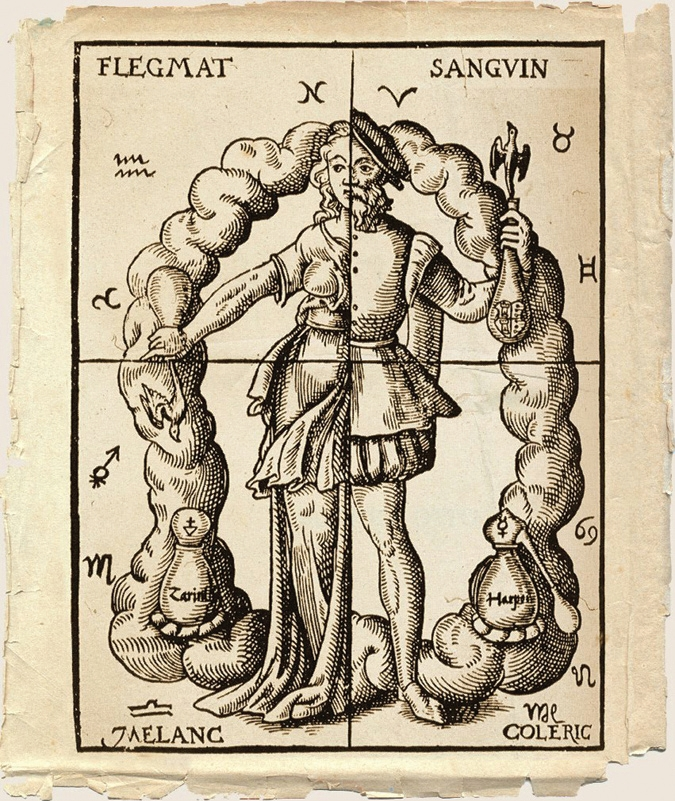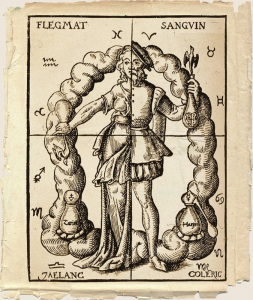The Theory of the Four Humours
The Theory of the Four Humours was an important development in medical knowledge which originated in the works of Aristotle. Hippocrates is credited with developing the theory. It then became a mainstay of medical belief for two thousand years. The Greeks believed that the body was made up of four main components or Four Humours. These Four Humours needed to remain balanced in order for people to remain healthy.
The Four Humours were liquids within the body- blood, phlegm, yellow bile and black bile. These could be connected to the four seasons of the year: Yellow Bile with summer, black bile with autumn, phlegm with winter and blood with spring.
Hippocrates and other Greek practitioners argued that the balance of the Four humours would be most effected in those particular seasons. For example, if someone has a fever they would have been thought to have had too much blood in their body. The logical cure therefore is to ‘bleed’ the patient.
Use of the Four Humours as a diagnostic tool would result in doctors looking for symptoms: the first time that clinical observation of a patient was recorded.
Medicine in Ancient Greece – Hippocrates, the Father of Medicine – The Theory of the Four Humours – Cult of Asclepius – Public Health in Ancient Greece – Revision Game – Ancient Medicine
Medicine through time – Prehistoric Medicine – Egyptian Medicine – Greek Medicine – Roman Medicine – Medieval Medicine – Medicine in the Renaissance – Fight against Infectious Disease – Public Health in the Industrial Revolution – Modern Medicine – Revise for Medicine through time GCSE – GCSE History of Medicine resources


